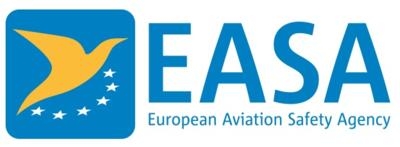But Agency Feels The Need To Clarify News Reports
After an unprecedented presentation by EASA head Patrick Ky to the European Parliament expressing skepticism of Boeing/FAA safety standards and pledging a tougher stance on ungrounding the deadly Boeing 737 MAX, FlyersRight.org reached out and was granted an exclusive interview.

The interview focused on the potential recertification of the Boeing 737 MAX in Europe. According to Flyers Rights, EASA said "Boeing has to demonstrate compliance of the 737 MAX airframe with (airworthiness requirements)...and using acceptable safety analysis methodology."
The organization indicates that the agency said that Pilot training requirements "are not meant to compensate for non-acceptable design on the compliance and safety standpoint."
"EASA has set requirements for flight and simulator evaluation with 70 test points to be evaluated, covering both normal and abnormal operations," the agency said. "The simulator evaluation(s) were performed in June and July. Among the next milestones are flight tests to performed by EASA on a modified 737 MAX that will last a full week."
Other highlights include:
Re: Boeing "self-certification" as allowed by FAA: No Comment or opinion.
Re: Boeing's proposed software-only changes with no hardware changes, no extra pilot simulator training, no aircraft re-design is adequate: No comment or opinion.
Re: Whether simulators for older 737 models or new MAX simulators will be required: No decision made but leaning toward old."
The complete questions and responses, plus EASA's presentation to the EU Parliament of September 3rd are available at www.FlyersRights.org.
But according to EASA, the "interview" was actually a series of written questions submitted by email to which the agency responded. According to the agency, the full responses were as follows:

“An aircraft is certified based on the demonstration that its design complies with all relevant airworthiness requirements and all features are safe. Our airworthiness requirements are not prescriptive. Depending on the technology and system architecture used, aeroplanes can meet the safety objectives differently. Therefore, we would not compare aircraft to each other, rather assess how they comply with the requirements.”
“Aircraft longitudinal stability is subject to airworthiness requirements. Boeing has to demonstrate compliance of the 737 MAX airframe with these requirements. Consequences of failures of systems affecting potentially the aircraft stability need to be assessed using acceptable safety analysis methodology also subject to airworthiness requirements. Pilot training requirements are not meant to compensate for non-acceptable design on the compliance and safety standpoint.”
“Some investigations are ongoing on the certification process followed by the FAA in the case of the B737 MAX. EASA do not wish to comment on the presumable “self-certification” or on the level of delegation to Boeing that the FAA has granted.”
On the matter of the necessity of hardware changes, aircraft redesign and pilot retraining on full-motion simulators, we stated: “Our design review is not completed yet and we have not reached a conclusion yet on that matter."
“Flight crew training does not systematically require training sessions on flight simulators specific to the aircraft model. It is not unusual that, depending on the differences between two models, flight crews are trained on a flight simulator not specific to the model (in this case it would be a B737 NG flight simulator) and then a computer-based difference training is provided in addition. This has been shown to be acceptable and effective in a number of cases. In the case of the B737 max, our review of pilot training requirements is not completed yet and we have not reached a conclusion yet on that matter.”
(Source: News releases)
 ANN's Daily Aero-Term (04.24.24): Runway Lead-in Light System
ANN's Daily Aero-Term (04.24.24): Runway Lead-in Light System ANN's Daily Aero-Linx (04.24.24)
ANN's Daily Aero-Linx (04.24.24) Aero-FAQ: Dave Juwel's Aviation Marketing Stories -- ITBOA BNITBOB
Aero-FAQ: Dave Juwel's Aviation Marketing Stories -- ITBOA BNITBOB Classic Aero-TV: Best Seat in The House -- 'Inside' The AeroShell Aerobatic Team
Classic Aero-TV: Best Seat in The House -- 'Inside' The AeroShell Aerobatic Team Airborne Affordable Flyers 04.18.24: CarbonCub UL, Fisher, Affordable Flyer Expo
Airborne Affordable Flyers 04.18.24: CarbonCub UL, Fisher, Affordable Flyer Expo




